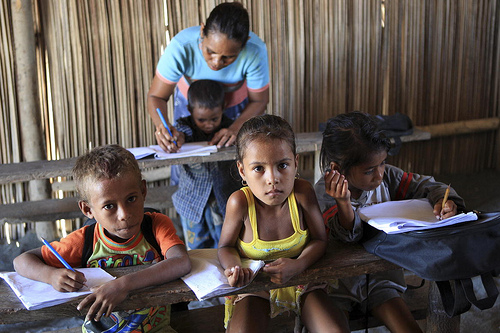4
Jun
June 4, 2013
 Many times, prospective adoptive parents spend weeks or even months researching country programs, requirements, and agencies. Submitting an adoption application is the first big step when heading down the path to adoption. An adoption application may seem like a mere formality, but it is a very important tool in screening families to be sure that they do not enter into an adoption that they do not meet the requirements to complete.
Many times, prospective adoptive parents spend weeks or even months researching country programs, requirements, and agencies. Submitting an adoption application is the first big step when heading down the path to adoption. An adoption application may seem like a mere formality, but it is a very important tool in screening families to be sure that they do not enter into an adoption that they do not meet the requirements to complete.
When completing an adoption application, you may come across some difficult or personal questions and wonder why certain information is needed. While some of the information required may seem unimportant or unnecessary, there is usually a simple explanation for each requirement.
- Birth Dates – Many countries have specifications on the ages of the adopting parents; providing your birth date allows the agency to screen your ages to ensure that the requirements are met for each specific country.
- Children’s Names and Birth Dates – Again, many countries have restrictions on how many children can reside in the home at the start of the adoption process, and the agency uses this information when considering whether a family qualifies for a specific country program.
- Income – In order for your child to be issued a visa to enter the US, parents must be able to show that they have sufficient income to care for that child. Families must meet 125% of US Poverty Guidelines, including the child(ren) that they plan to adopt. Minimum requirements can be found here.
- Marital Information – Many countries have requirements on length of marriage. By providing your marital status and date of marriage, the agency can easily assess whether you meet the requirements to a specific country.
- Religious Affiliation – Some countries do show a preference for families of a certain religious background. For instance, Haiti prefers that families are Christian or Jewish. Including this information on the application allows agencies to screen for this requirement.
- Passport Numbers – Most countries require travel, and the need for a passport is self-explanatory. Although some countries do allow for the use of escorts, requirements can change at any time and all parents should be prepared to travel. If you don’t have a current passport, the agency will need to know that obtaining one is a priority.
- States and Countries Resided Since 18th Birthday – To qualify for an adoption, extensive criminal history checks are required. Indiana law requires that parents complete state or country checks for all places resided since the 18th birthday, as well as local checks for cities in the most recent five years.
- Household Members in Addition to Your Children – Any other adults or children residing in the home have to submit the same criminal history and other background checks that are required for adopting parents/immediate family. It is important for the agency to have this information from the outset so that the information can be obtained in a timely manner to avoid unnecessary delays.
- Questions Regarding Criminal History Background, Abuse Background, and Mental Health History – As mentioned above, families must pass extensive background checks during the adoption process. Usually, minor offenses are not a problem if a significant amount of time has passed since the last offense. Typically, anyone who has been convicted of abuse or neglect against a child will not qualify to adopt. Victims of abuse and those with a mental health history may be asked for more information; typically agencies want to know that there has been treatment and that support is still in place if needed.
When you are dealing with state law, federal law, foreign law, and international law, there are a lot of requirements that must be met in order to complete an adoption. The application process is the first of many checks and balances that is in place to help a family complete an adoption in the most efficient manner possible. Sometimes the paperwork required for an adoption may seem overwhelming, but it is all worth it when a child is welcomed into his/her forever family!
Photo Credit: United Nations Photo
For more information about MLJ Adoptions’ international adoption programs, please click here.
